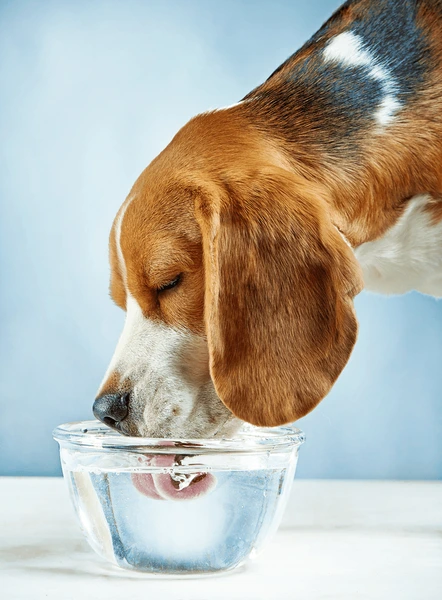
Understand your Dog's Hydration
Boost Blog | Written by Louise Toal, Founder of Furr Boost
The key to keeping any dog fit and healthy is to feed it a balanced and nutritious diet. A
good diet should consist of the correct balance of Fats, Carbohydrates and Proteins which are then broken down by the body into micro nutrients to furniture all living cells with their nutrition to function and survive.
For our canine friends it is not only important to feed a complete balanced meal containing
all three macros but it is also important to make sure that any diet contains quality human
grade ingredients (where possible) and from a good source.
How do these macros work for dogs?
There are arguments that a dog’s diet should be high in protein and that there is no need for
carbohydrates. Whilst high protein is needed to build up the dog’s body and muscle with
amino acids, in domestic dogs, carbohydrates can be useful since dogs have evolved to
become omnivores as opposed to being carnivores like their wild ancestors were, with
carbohydrates giving added benefits to their digestive tract.
Carbohydrates breakdown to sugar and this is where a dog will burn its energy store first, so
those dogs who are exercising more will benefit from a balance of carbohydrates in their
diet. With the complex carbohydrates (low GI vegetables and green vegetables) being more
beneficial as they also breakdown into non soluble fibre and keep the intestinal tract
moving, nutritional absorption and poop formation will be helped.
Finally fats, these are required to help with energy levels, muscle and cell function as well as
anti-inflammatory and skin and coat properties. The fats in a dog’s diet should be a balance
of both saturated and unsaturated otherwise it could lead to inflammation of joints and
other health problems. With a fat cell being a lot larger than a protein or carbohydrate
molecule they are easily digested by our canine friends and are essential to their health.


Water the most valuable source
There is one valuable nutritional source however that is often overlooked and that is water.
There is a myth that dogs on a raw fed diet do not need much water as their diet is high in
moisture; however their body still needs to take on water in order to aid both the function
of digestion and also to replace those fluids lost through:
Panting – the main way a dog regulates their body temperature
Urine – The use of water to drive through the kidneys and take any impurities with it.
Poop – This has water in it to help keep stool movements regular. With constipation
meaning there is a lack of water in the diet to diarrhoea when water lost will be high and
those lost fluids need replacing.
The call for water will also be naturally high when the dog is hot, is feeling anxious or has
been subjected to exertion in order to replace those fluids that are lost mainly from panting.
As the organs start to age in senior dogs they may also require more hydration and will tend
to drink more.
As for those dogs on a kibble diet water is more essential in order to help breakdown their
food, which can have water content as little as 7%. For an animal whose body is made up of
roughly 80% water, its essential to their health that fresh water is available at all times for
them to keep their levels topped up.
Water is needed at the very start of the digestion process in order to help break those
macronutrients into micronutrients this is called hydrolysis and in turn facilitates the
transportation of those nutrients to every living cell in their body.
The transport of these nutrients keep brain levels topped up and in turn helps with cognitive
brain function, producing an alert and bright dog. There are studies in humans that
dehydration leads to a lack of blood flow to the brain which makes us feel tired and less
alert, and more recently has been linked to feelings of anxiety and depression.
Water also helps to absorb and carry away any heat from internal organs that are working
hard and help regulate temperature.
Whilst most owners are aware in the summer months that dogs exposed to heat and the
sun need to stay cool, hydration should be monitored all year round. Dogs living in heated
homes or sleeping by the fire still need to stay cool and keep those all-important water
levels topped up in order to regulate their whole system and thrive.

